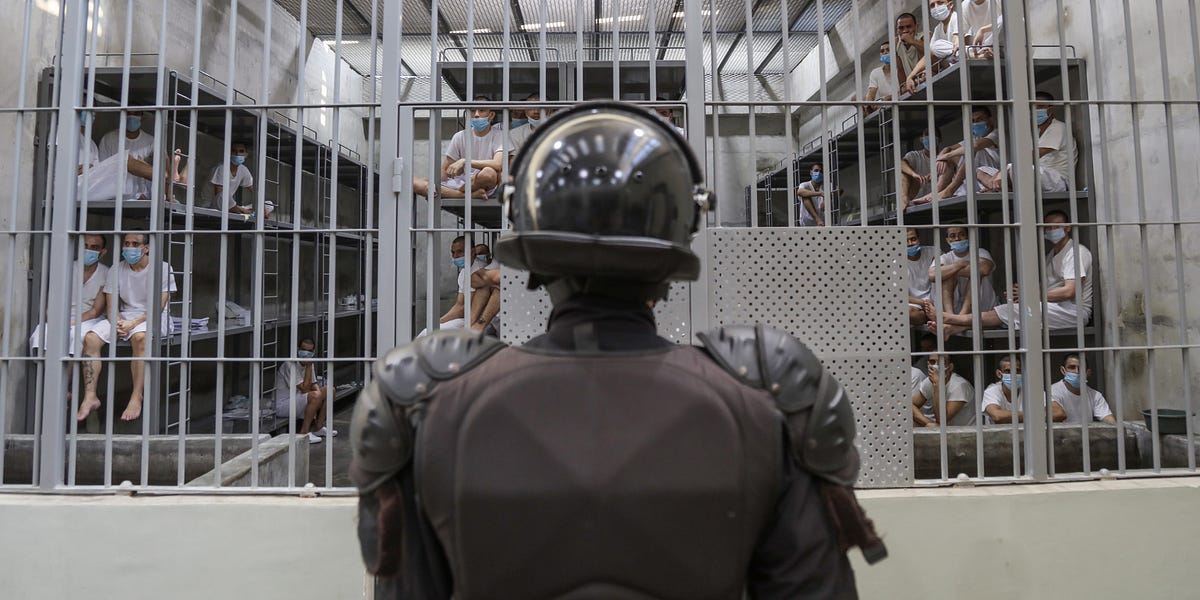Supreme Court Decision Looms Over Deportation Case of Kilmar Abrego Garcia
The U.S. Supreme Court prepares to rule on the deportation of Kilmar Abrego Garcia, raising critical concerns about executive power and individual rights.

Less than three months into Trump’s second term, the stakes of litigation over its agenda are extremely high.
Trump Refuses to Bring Back Those Wrongly Detained in El Salvador. You Could Be Next.
 Mother Jones·9d·Mostly ReliableThis source is generally reliable but sometimes includes opinion, propaganda, or minor inaccuracies.LeftThis outlet favors left-wing views.
Mother Jones·9d·Mostly ReliableThis source is generally reliable but sometimes includes opinion, propaganda, or minor inaccuracies.LeftThis outlet favors left-wing views.
If these precepts are allowed to stand—and so far, they have been—what would stop the government from apprehending a U.S. citizen, putting the American on a plane to El Salvador, and handing him to that country’s government with the expectation of indefinite imprisonment?
Concentration Camps and the Deportation of American Citizens
 The Bulwark·10d·Mostly ReliableThis source is generally reliable but sometimes includes opinion, propaganda, or minor inaccuracies.CenterThis outlet is balanced or reflects centrist views.
The Bulwark·10d·Mostly ReliableThis source is generally reliable but sometimes includes opinion, propaganda, or minor inaccuracies.CenterThis outlet is balanced or reflects centrist views.
Yet, they wrote, "the Government still has not supplied a satisfactory answer to that central question."
Wrongly deported man’s lawyers call out Trump DOJ’s ‘extreme step’ in Supreme Court litigation
 MSNBC·10d·Mostly ReliableThis source is generally reliable but sometimes includes opinion, propaganda, or minor inaccuracies.LeftThis outlet favors left-wing views.
MSNBC·10d·Mostly ReliableThis source is generally reliable but sometimes includes opinion, propaganda, or minor inaccuracies.LeftThis outlet favors left-wing views.
Summary
Kilmar Abrego Garcia's deportation to El Salvador could set a precedent for the U.S. government's power to eliminate due process in removals. The Supreme Court's forthcoming decision will determine if the government can ignore judicial orders. Legal experts warn that a ruling in favor of the Trump administration could create a dangerous pathway for unlawfully removing individuals while bypassing checks on presidential authority, posing threats to both noncitizens and citizens.
Perspectives
The government argues that once a noncitizen is sent to a foreign country, it loses jurisdiction and cannot be compelled to retrieve them, creating a potential for indefinite imprisonment without due process.
There is concern that allowing the executive branch this level of power leads to scenarios where individuals, including U.S. citizens, could be sent abroad illegally under the pretense of administrative error or national security, with no legal remedies available.
The legal precedent set in the upcoming Supreme Court case may redefine the limits of executive authority concerning deportations and the rights of both citizens and noncitizens to contest illegal removal.